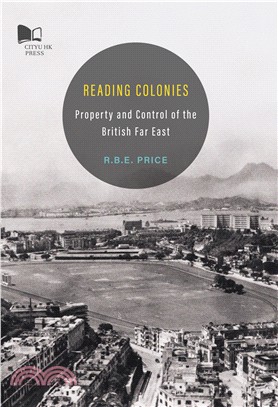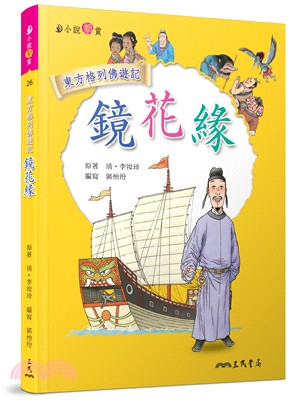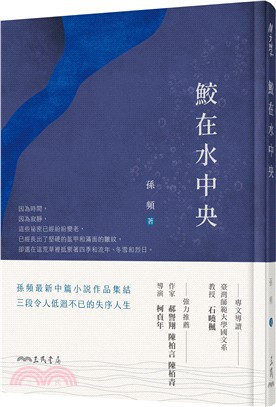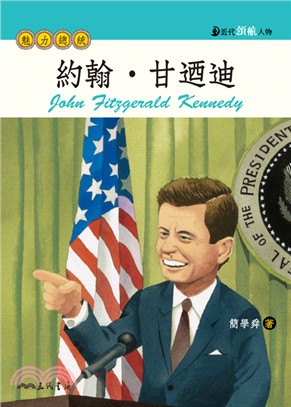Reading Colonies-Property and Control of the British Far East
商品資訊
系列名:Royal Asiatic Society Hong Kong Studies Series
ISBN13:9789629372972
出版社:香港城市大學出版社
作者:R.B.E. Price
出版日:2017/01/01
裝訂/頁數:平裝/248頁
規格:23cm*17cm (高/寬)
商品簡介
作者簡介
目次
書摘/試閱
相關商品
商品簡介
BY 1945, EVERYWHERE ONE LOOKED IN THE FAR EAST THE BRITISH EMPIRE WAS BEING OPENLY QUESTIONED OR WAS FAILING OUTRIGHT. YET IN THE PREVIOUS CENTURY, THE BRITISH HAD BEEN THE PRE-EMINENT IMPERIAL POWER FROM WEIHAIWEI TO NORTH BORNEO.
READING COLONIES: PROPERTY AND CONTROL OF THE BRITISH FAR EAST INVESTIGATES HOW THE BRITISH HELD ON FOR SO LONG. RENT CONTROL LEGISLATION, AND OTHER MEASURES OF PROPERTY LAW SUCH AS LAND IMPROVEMENT OPPORTUNITIES, ARE NOMINATED AS KEY TOOLS USED TO FRUSTRATE DECOLONIZATION IN MOST EASTERN COLONIES. BRITISH COLONIAL ADMINISTRATIONS TRIED LONG AND HARD TO INHIBIT THE DIALECTICAL DISCORD BETWEEN THEIR COLONIAL HIERARCHISM AND LOCAL FORMS OF NATIONALISM WITH THE PROMPTS AND PLAUDITS OF PROPERTY POLICY. IN CASES WHERE INDIGENOUS LANDLORDISM MASQUERADED AS PATRIOTISM, INDEPENDENCE CAME QUICKLY (CEYLON AND BURMA). WHERE PUBLIC HOUSING ESTABLISHED ITSELF AS A KEY POST-WAR PLANK OF SOCIAL POLICY, FREEDOM FROM BRITISH RULE WAS A MORE GRADUAL AFFAIR (BRITISH MALAYA AND HONG KONG).
THIS STUDY CONCLUDES THAT BRITISH COLONIAL REGIMES DID NOT OFFER A SHARE OF THEIR INDUSTRIAL MODERNITY TO STAY AT THE APEX OF POLITICAL POWER, BUT READILY ADJUSTED OLD-STYLE LANDLORDISM TO KEEP NATIONALIST USURPERS AT BAY.
READING COLONIES: PROPERTY AND CONTROL OF THE BRITISH FAR EAST INVESTIGATES HOW THE BRITISH HELD ON FOR SO LONG. RENT CONTROL LEGISLATION, AND OTHER MEASURES OF PROPERTY LAW SUCH AS LAND IMPROVEMENT OPPORTUNITIES, ARE NOMINATED AS KEY TOOLS USED TO FRUSTRATE DECOLONIZATION IN MOST EASTERN COLONIES. BRITISH COLONIAL ADMINISTRATIONS TRIED LONG AND HARD TO INHIBIT THE DIALECTICAL DISCORD BETWEEN THEIR COLONIAL HIERARCHISM AND LOCAL FORMS OF NATIONALISM WITH THE PROMPTS AND PLAUDITS OF PROPERTY POLICY. IN CASES WHERE INDIGENOUS LANDLORDISM MASQUERADED AS PATRIOTISM, INDEPENDENCE CAME QUICKLY (CEYLON AND BURMA). WHERE PUBLIC HOUSING ESTABLISHED ITSELF AS A KEY POST-WAR PLANK OF SOCIAL POLICY, FREEDOM FROM BRITISH RULE WAS A MORE GRADUAL AFFAIR (BRITISH MALAYA AND HONG KONG).
THIS STUDY CONCLUDES THAT BRITISH COLONIAL REGIMES DID NOT OFFER A SHARE OF THEIR INDUSTRIAL MODERNITY TO STAY AT THE APEX OF POLITICAL POWER, BUT READILY ADJUSTED OLD-STYLE LANDLORDISM TO KEEP NATIONALIST USURPERS AT BAY.
作者簡介
Rohan B.E. Price is a Lecturer-at-Law in the School of Law and Justice at Southern Cross University. He holds a PhD in British property law policy in Hong Kong between the world wars and is also the acclaimed biographer of Philip Jacks, Hong Kong Land Officer. Rohan has enjoyed extensive stints teaching and researching in China. He has written widely on law and policy issues in modern China and Hong Kong for many well-regarded journals and reviews.
目次
Contents
Chapter 1 The Limits of Theory
Chapter 2 Reading Colonies via Property Policy
Chapter 3 Judicial Autonomy and
Post-War Rent Control
Chapter 4 Property as Anti-Nationalism or Failing Geopolitics
Chapter 5 Reading Capital, Reading Colonies
Chapter 6 Codas
Chapter 1 The Limits of Theory
Chapter 2 Reading Colonies via Property Policy
Chapter 3 Judicial Autonomy and
Post-War Rent Control
Chapter 4 Property as Anti-Nationalism or Failing Geopolitics
Chapter 5 Reading Capital, Reading Colonies
Chapter 6 Codas
書摘/試閱
1 The Limits of Theory
Introduction
By merely identifying class struggle, Marx did not distinguish himself from a hoard of earlier historians. By attaching the existence of classes to particular phases of production throughout history, however, he did something unique: he proposed that the antagonism between the relations of production was what propelled history from one epoch (or historical phase of production) to another. The interaction of thesis and antithesis produced a new form following evolutionary science. Yet Balibar conceded that the science of history was a problematic idea because Marx had not always been perfectly explicit about his conception of history.
Marxists serially underperform on the impact of nationalism and its decolonizing implications on dialectical process out East. The narcissistic allure of Eurocentrism and the historiographical deficit of good writing on quasi-colonial China are, of course, one and the same thing. Yet the impetus, provided by racist belief in the superiority of Western industrialism, for the installation of an unbridled industrialist-capitalist mode of production in China was weak when compared to its dominance in other spheres of British colonial influence. This lack of colonial selfassurance had big, and largely underrated, implications for how race and antithetical positions on Home Rule informed colonial practices in the Eastern Empire.
If we are to make sense of twenty-first-century East Asia, we must resist the mordant temptation to refer to the modes of production from the mindset of European colonial progress. Aggressive nationalist conceptions coursing around British East Asian colonies especially, after the early 1840s, made the social relations of production indescribably complex. Overseas colonial dependencies could produce their own relations of production in a manner that sternly contested their negative racial characterization by the local British administrations. Enactment of purely metropolitan measures became quite unlikely abroad. The European blind spot caused by assumed superiority of their economic system was not, as Young recognized, a universal problem for post-war Marxists: “Sometimes Althusser seems to imply that different histories may range through different modes of production, at other times it appears that they are specific to each, an effect of the overdetermination of the social formation”. Historical development, then, could take the form of petit bourgeois accretion of capital produced by cottages and workshops, or trade in a scarce commodity, as much of it was rule of the middle class produced by fortunate co-location of water and paddlewheels, or coal and steam engines.
I made a bold claim in the preface; one that makes European conceptions of their influence on historical progress of the East less an issue of comparison or conceptual narcissism than the chafing and struggle between rival economic systems. Western and local modes of production made a compact not to stray into each other’s domain that was expressed in hybrid institutional arrangements in colonial outposts which, themselves, were the way for colonial rulers to slow down historical progress, by numbing subaltern agony or misdirecting bourgeois nationalism away from a path to decolonization.
Althusser was rather indifferent to Third World struggles and especially so when they did not comply faithfully to a Western Marxist expectation of the working class taking a central role as the only truly revolutionary class. Thus, those who felt empathy for the wretched of the earth were, in Althusser’s lexicon, guilty of historicism, racial romanticism, or humanist sympathies. They played for postcolonial compensation born of guilt rather than a major revision of ownership derived from historical process. By not willing on class warfare, or revolution culminating in epochproducing political change, the romantics preferred revelling in exceptionalism to verifying dialectical materialism.
Questioning how historical materialism operated does not make one less of a Marxist. In my case, I argue that the opposition of indigenous and colonial initiatives was stymied by colonial property policy on Far Eastern shores. Bartolovich suggested the need for an overhaul of Marxist theory when she contended that: “Marxism has viewed modernity and capitalism as inextricably bound up with each other”, but that a new formulation of historical progress is needed that “counters the idealist and dematerializing tendencies” of this most central of Marxist assumptions. Chibber’s recent contribution breathed new life into the European conception of historical materialism as an explanation for the rise of the bourgeoisie in India to take the mantle of independent government. According to him, “the theories generated by the European experience” do not have to be “overhauled or jettisoned but simply modified”. Although his reading has provoked much heated debate in the subaltern academy, its significance has been to put historical process back at the centre of postcolonial studies in a way we have not seen for many years.
Throughout the possessions of coastal China, and other British divots of the Far East, local modes of production and distribution were not torn out root and branch by the dominant clench of imperial capital. Colonials enjoyed superior rights in spheres of influence but rarely did they attain political hegemony or hold sway economically outside of their monopolies. Arrighi contended that “European expansion into Asia did not bring the Sinocentric tribute-trade system to an end … it simply influenced its inner dynamics”.6 Reduced to the politics of a single colony, namely Hong Kong, Chiu made it clear that the local colonial government was quite capable of producing political “equilibrium” despite “a very intricate political situation” via “administrative absorption” of local elites.
In Chiu’s view, dialectical tussles were not fought on an uncontested British ground but on the stage of economically savvy Chinese subjects who participated in “elite consensual government” if Home Rule was not in prospect. After 1947, however, despite over a century of economic competition within colonies answered by statutory dialectic busting, the stability that had been manufactured in their possessions out East looked vulnerable. In the end, the British colonial administrations of East Asia proved to be “bean curd tigers” in Mao’s memorable phrase. Why they had declined in the space of a century had more than a little to do with their inability to conquer and remould the pre-existing economic models encountered in the Far East. This has implications for how much of the historical progress of the Chinese colonies colonialism can be given credit for.
The classical Marxian schema has it that the mode of production of slavery, serfdom, or wage labour produced social divisions and social relations of production under which a master, nobleman, or employer respectively took ascendant positions. Marx observed that the capitalist production system reproduced itself not only through property in commodities and surplus value but also by “producing and externalising the social relation between the capitalist and the wage-earner”.
An historical materialist account of the Far East could admit colonial government alternation between neutralization of nationalist movements and capitulation to them as a way to preserve the relations of production in the favour of foreign investment in the last instance. Marx foresaw that the tenacity of the pre-capitalist mode in China and the impossibility of the British garrisoning the mainland would eventually, in times of serious strife, make the colonial grasp very shaky indeed. Most foreigners had abandoned their livelihoods and property in China by 1947 and by 1949 the British toehold in Hong Kong was all that was left of a litany of concessions that once punctuated the Chinese littoral.
Althusserian theory needs to be rewritten in the case of quasicolonial China, and the Far East generally, most particularly on topics such as the influence of race on dialectical process, but also in regard to civilization and credit where it is due for the economic advancement in the Asian colonies. Unless this is done, little sense at all can be made of the British colonial administrations offering subaltern rent control and petit bourgeois land improvement opportunities to so-called “subject races” in their Chinese colonies. The replicated policy of rent control, as I suggested in the preface, is prime territory for theorizing because, as a dialectical inhibitor aimed at the subaltern quarter, it was a compensative way for the delegates of the metropole to help keep as many extractive colonial enterprises in the imperial fold as possible.
This chapter is divided into four parts. I observe in the second part that nationalist political tensions in British colonies prompted use of a purposeful policy mechanism by the British. In the third part, I lay down the argument framework about the competing social and political forces between which British self-preservation pivoted in their East Asian possessions. Lastly, I deal with a few of the obvious challenges from Chinese history to a thesis of relative autonomy in a colonial context. In the first part it is necessary to discuss how far the dialectical model received by Althusser can take us, having regard to how the enactments of race and nationalism by colonial subjects forced British administrations to recognize the constitutional exceptionalism of the Far East in the way that dialectical interactions occurred.
Introduction
By merely identifying class struggle, Marx did not distinguish himself from a hoard of earlier historians. By attaching the existence of classes to particular phases of production throughout history, however, he did something unique: he proposed that the antagonism between the relations of production was what propelled history from one epoch (or historical phase of production) to another. The interaction of thesis and antithesis produced a new form following evolutionary science. Yet Balibar conceded that the science of history was a problematic idea because Marx had not always been perfectly explicit about his conception of history.
Marxists serially underperform on the impact of nationalism and its decolonizing implications on dialectical process out East. The narcissistic allure of Eurocentrism and the historiographical deficit of good writing on quasi-colonial China are, of course, one and the same thing. Yet the impetus, provided by racist belief in the superiority of Western industrialism, for the installation of an unbridled industrialist-capitalist mode of production in China was weak when compared to its dominance in other spheres of British colonial influence. This lack of colonial selfassurance had big, and largely underrated, implications for how race and antithetical positions on Home Rule informed colonial practices in the Eastern Empire.
If we are to make sense of twenty-first-century East Asia, we must resist the mordant temptation to refer to the modes of production from the mindset of European colonial progress. Aggressive nationalist conceptions coursing around British East Asian colonies especially, after the early 1840s, made the social relations of production indescribably complex. Overseas colonial dependencies could produce their own relations of production in a manner that sternly contested their negative racial characterization by the local British administrations. Enactment of purely metropolitan measures became quite unlikely abroad. The European blind spot caused by assumed superiority of their economic system was not, as Young recognized, a universal problem for post-war Marxists: “Sometimes Althusser seems to imply that different histories may range through different modes of production, at other times it appears that they are specific to each, an effect of the overdetermination of the social formation”. Historical development, then, could take the form of petit bourgeois accretion of capital produced by cottages and workshops, or trade in a scarce commodity, as much of it was rule of the middle class produced by fortunate co-location of water and paddlewheels, or coal and steam engines.
I made a bold claim in the preface; one that makes European conceptions of their influence on historical progress of the East less an issue of comparison or conceptual narcissism than the chafing and struggle between rival economic systems. Western and local modes of production made a compact not to stray into each other’s domain that was expressed in hybrid institutional arrangements in colonial outposts which, themselves, were the way for colonial rulers to slow down historical progress, by numbing subaltern agony or misdirecting bourgeois nationalism away from a path to decolonization.
Althusser was rather indifferent to Third World struggles and especially so when they did not comply faithfully to a Western Marxist expectation of the working class taking a central role as the only truly revolutionary class. Thus, those who felt empathy for the wretched of the earth were, in Althusser’s lexicon, guilty of historicism, racial romanticism, or humanist sympathies. They played for postcolonial compensation born of guilt rather than a major revision of ownership derived from historical process. By not willing on class warfare, or revolution culminating in epochproducing political change, the romantics preferred revelling in exceptionalism to verifying dialectical materialism.
Questioning how historical materialism operated does not make one less of a Marxist. In my case, I argue that the opposition of indigenous and colonial initiatives was stymied by colonial property policy on Far Eastern shores. Bartolovich suggested the need for an overhaul of Marxist theory when she contended that: “Marxism has viewed modernity and capitalism as inextricably bound up with each other”, but that a new formulation of historical progress is needed that “counters the idealist and dematerializing tendencies” of this most central of Marxist assumptions. Chibber’s recent contribution breathed new life into the European conception of historical materialism as an explanation for the rise of the bourgeoisie in India to take the mantle of independent government. According to him, “the theories generated by the European experience” do not have to be “overhauled or jettisoned but simply modified”. Although his reading has provoked much heated debate in the subaltern academy, its significance has been to put historical process back at the centre of postcolonial studies in a way we have not seen for many years.
Throughout the possessions of coastal China, and other British divots of the Far East, local modes of production and distribution were not torn out root and branch by the dominant clench of imperial capital. Colonials enjoyed superior rights in spheres of influence but rarely did they attain political hegemony or hold sway economically outside of their monopolies. Arrighi contended that “European expansion into Asia did not bring the Sinocentric tribute-trade system to an end … it simply influenced its inner dynamics”.6 Reduced to the politics of a single colony, namely Hong Kong, Chiu made it clear that the local colonial government was quite capable of producing political “equilibrium” despite “a very intricate political situation” via “administrative absorption” of local elites.
In Chiu’s view, dialectical tussles were not fought on an uncontested British ground but on the stage of economically savvy Chinese subjects who participated in “elite consensual government” if Home Rule was not in prospect. After 1947, however, despite over a century of economic competition within colonies answered by statutory dialectic busting, the stability that had been manufactured in their possessions out East looked vulnerable. In the end, the British colonial administrations of East Asia proved to be “bean curd tigers” in Mao’s memorable phrase. Why they had declined in the space of a century had more than a little to do with their inability to conquer and remould the pre-existing economic models encountered in the Far East. This has implications for how much of the historical progress of the Chinese colonies colonialism can be given credit for.
The classical Marxian schema has it that the mode of production of slavery, serfdom, or wage labour produced social divisions and social relations of production under which a master, nobleman, or employer respectively took ascendant positions. Marx observed that the capitalist production system reproduced itself not only through property in commodities and surplus value but also by “producing and externalising the social relation between the capitalist and the wage-earner”.
An historical materialist account of the Far East could admit colonial government alternation between neutralization of nationalist movements and capitulation to them as a way to preserve the relations of production in the favour of foreign investment in the last instance. Marx foresaw that the tenacity of the pre-capitalist mode in China and the impossibility of the British garrisoning the mainland would eventually, in times of serious strife, make the colonial grasp very shaky indeed. Most foreigners had abandoned their livelihoods and property in China by 1947 and by 1949 the British toehold in Hong Kong was all that was left of a litany of concessions that once punctuated the Chinese littoral.
Althusserian theory needs to be rewritten in the case of quasicolonial China, and the Far East generally, most particularly on topics such as the influence of race on dialectical process, but also in regard to civilization and credit where it is due for the economic advancement in the Asian colonies. Unless this is done, little sense at all can be made of the British colonial administrations offering subaltern rent control and petit bourgeois land improvement opportunities to so-called “subject races” in their Chinese colonies. The replicated policy of rent control, as I suggested in the preface, is prime territory for theorizing because, as a dialectical inhibitor aimed at the subaltern quarter, it was a compensative way for the delegates of the metropole to help keep as many extractive colonial enterprises in the imperial fold as possible.
This chapter is divided into four parts. I observe in the second part that nationalist political tensions in British colonies prompted use of a purposeful policy mechanism by the British. In the third part, I lay down the argument framework about the competing social and political forces between which British self-preservation pivoted in their East Asian possessions. Lastly, I deal with a few of the obvious challenges from Chinese history to a thesis of relative autonomy in a colonial context. In the first part it is necessary to discuss how far the dialectical model received by Althusser can take us, having regard to how the enactments of race and nationalism by colonial subjects forced British administrations to recognize the constitutional exceptionalism of the Far East in the way that dialectical interactions occurred.
主題書展
更多
主題書展
更多書展今日66折
您曾經瀏覽過的商品
購物須知
為了保護您的權益,「三民網路書店」提供會員七日商品鑑賞期(收到商品為起始日)。
若要辦理退貨,請在商品鑑賞期內寄回,且商品必須是全新狀態與完整包裝(商品、附件、發票、隨貨贈品等)否則恕不接受退貨。
























